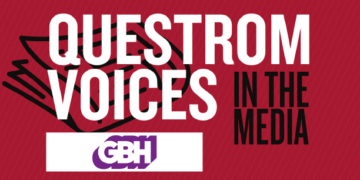June 15, 2023
Harvard Business Review recently published an article co-authored by Carey Morewedge, Professor of Marketing, detailing his research that identifies ways retailers can capitalize on the “refund effect.”
In 2022, 16.5% of U.S. merchandise purchases were returned, costing retailers an estimated $816 billion. It is common for companies to attempt to prevent returns by providing more product information prior to a sale or by increasing shipping and transaction fees after a sale; the first attempt benefits the consumer, while the second is beneficial to the seller. In six experiments, Morewedge and his colleague found that cross-selling products during the product return process reduced revenue loss and benefited all parties.
Morewedge shares, “Research participants were more likely to spend money from a product refund than from a bonus, and even more likely to spend refunded money than unexpected income, like lottery winnings and tax refunds. We call this ‘the refund effect.’”
Therefore, cross-selling opportunities must occur during the returns process — before money is reissued to the customers’ original payment method.






















